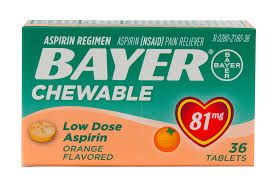Many of my friends have suffered from acne all throughout high school. They take on numerous ways to minimize acne such as moisturizers, creams and prescribed medicines by dermatologists. Acne can cause many young individuals to feel worse about themselves and some question the ways that they need to go about minimizing these blemishes. Many people believe that acne is caused by sweat,while studies shown it has no effect. I wanted to find the best ways in order to combat acne, if there really was such a way.
Acne first is defined as a disease of the Pilosebaceous units. These units are made up of a sebaceous gland that will then connect to the follicle, containing a strand of hair. The glands make an oily substance that empties within the surface of the skin opening the hair, which is known as the pore. Acne is first seen when the follicle that contains the hair, sebum and keratinocytes, produces a plug. Oils allow a bacteria known as Propionibacterium acnes have chemicals that attract white blood cells to cause an inflammation most commonly on the upper back, chest and face.
There are many precautions that have been studied to prevent the negative affects from working out with the human skin. Touching your skin is the worsts and preventing it will eliminate blemishes or clogged pores. While working out, touching your skin can move oils and bacteria into your skin leading to inflammation. A study was shown with football players who wore dirty equipment showed worse acne in these locations. This went against the many factors that exercise can get rid of toxins in the body. This experiment had many variables that helped to prove the causation of acne since football equipment does contain a lot of sweat that is not cleaned off. Even those who just lay on their sheets after working out will contain dirt that can cause irritation to the skin. To improve hygiene, it was recommended to wash your face with a gentle pH balancing cleanser. The sweat is not the main focus of these studies, it is the hygiene and care that one takes on after exercise.
There is actually no argument that can state that exercise is bad for humans. As you are working off those calories and relieving stress from such a busy week, individuals begin to believe that sweat could cause acne to those who are prone to have it. According to the Children’s Hospital of Colorado, sweat doesn’t have any affect on acne. Sweat begins when you begin your workout, which is made up of water and small amounts of ammonia, urea, salt and sugar. Sweat flushes these impurities from the skin. Exercise could be known to help the skin because in face it increases blood flow to an individual’s skin and brings nutrients through your body.
One major experiment was through a single-blinded, randomized, controlled trial that was tested on athletic males. It first began when guys had to workout 5 days a week for 2 weeks straight. The control group did not exercise, the next group showered within the first hour after the experiment and group 3 waiting longer than 4 hours to shower. The subjects were all wearing the same 100% cotton t-shirt so there were no outside variables towards the amount of acne. The amount of acne was counted after they worked out on day 14. These results concluded that
As many people believe exercise can help acne, some believe it can worsen. This study proved that 20.4% improved, 21.4% got worse and 29.1% had no affect. The information to this experiment proved that other tests need to be done in order to see the causation. There have been many debates about the real cause is acne such as genetics, stress and dietary choices. All in all, exercise is the best thing to relieve the stress, as many college students seem to follow that step today. The gym is very humid and causes many types of bacteria to harm humans. With the proper techniques, many will see that sweat is not the problem to their inflamed skin, but the proper care after their workout may cause their skin to break out.












